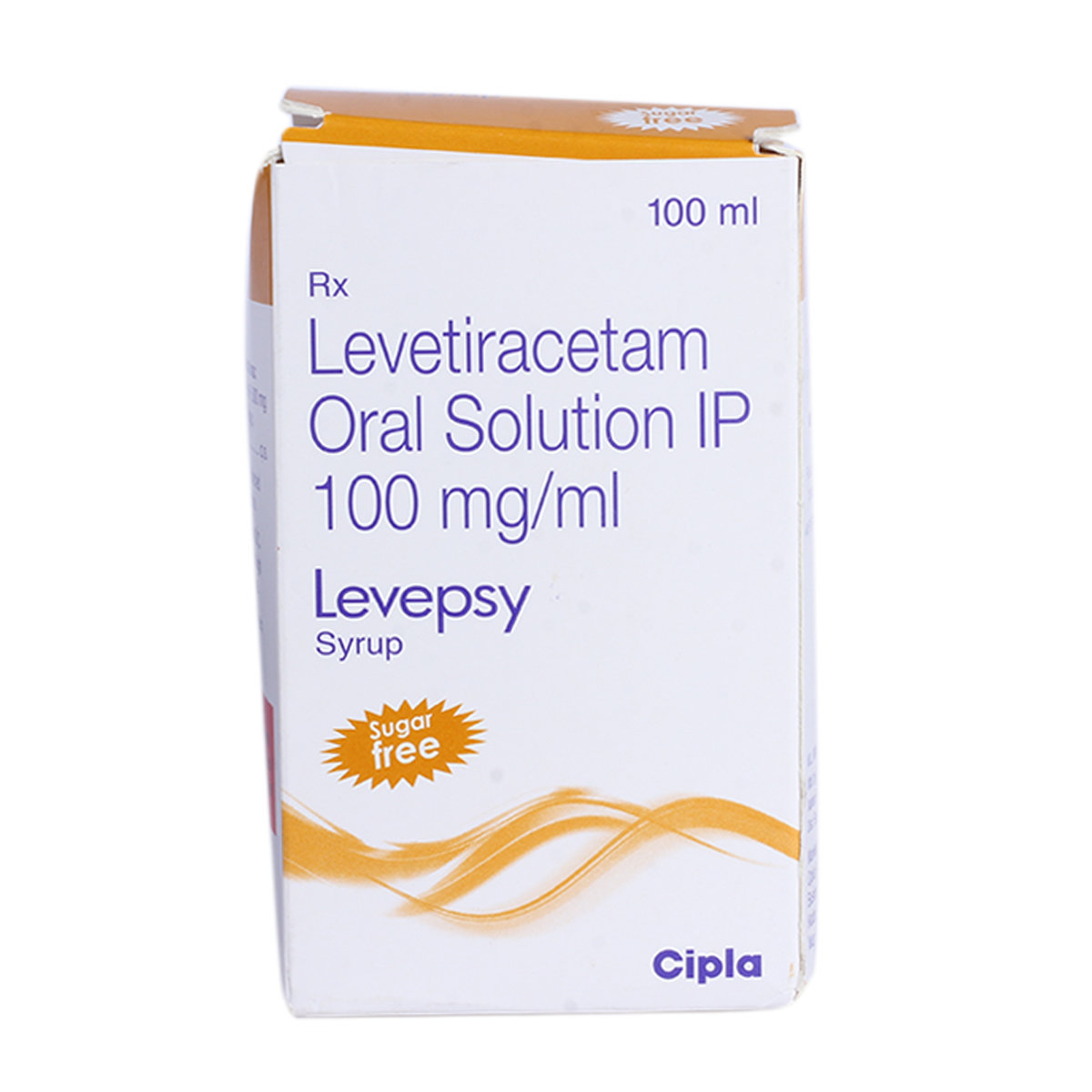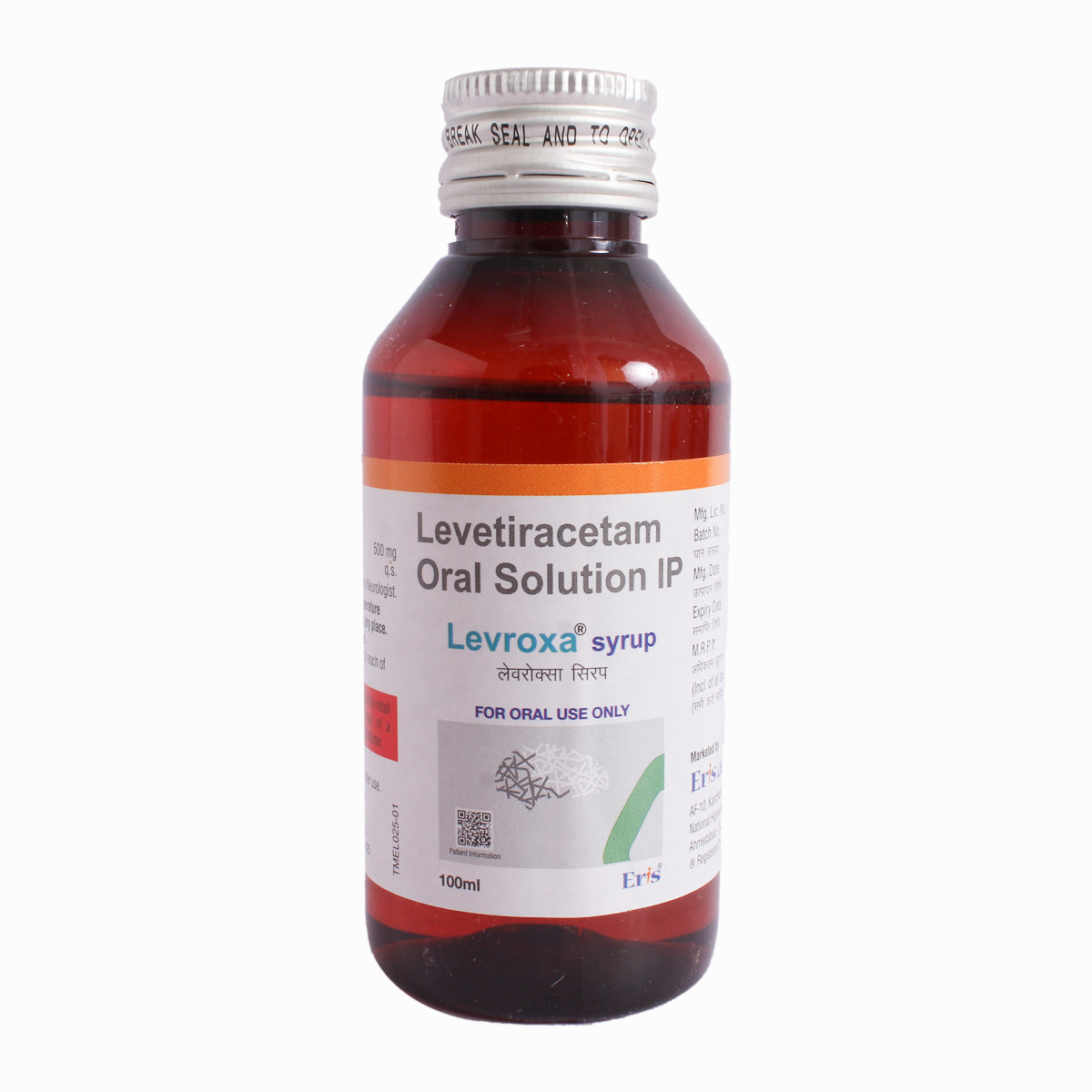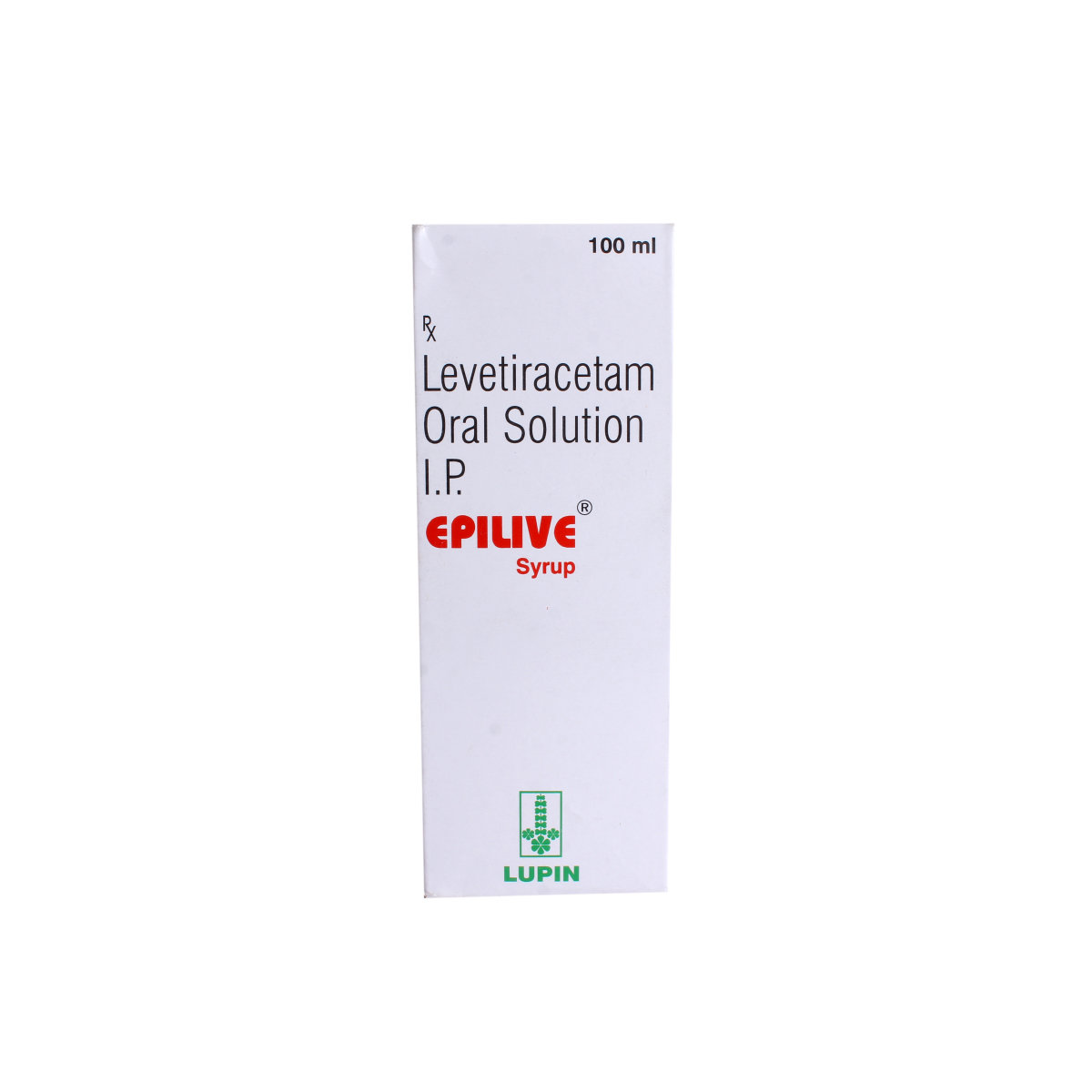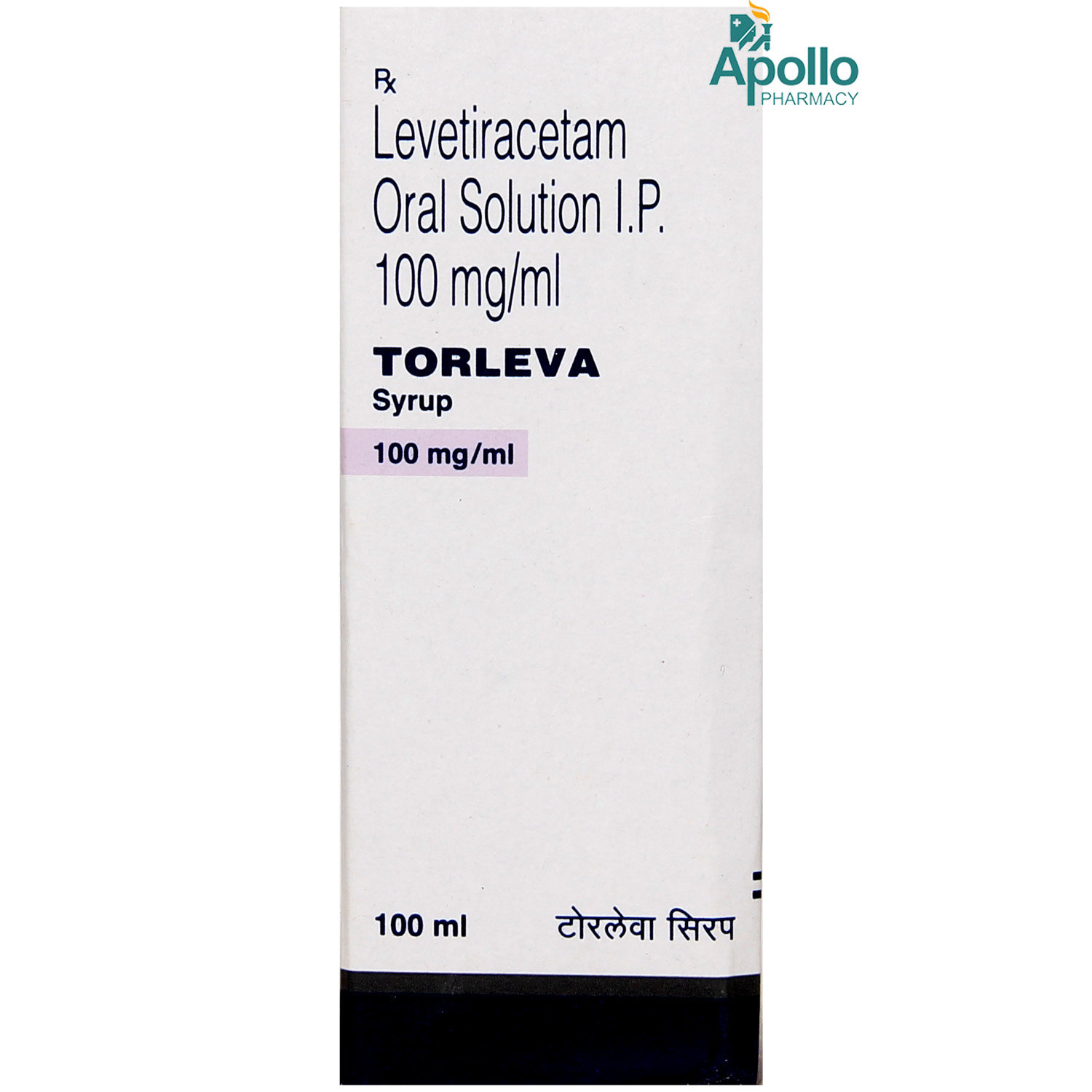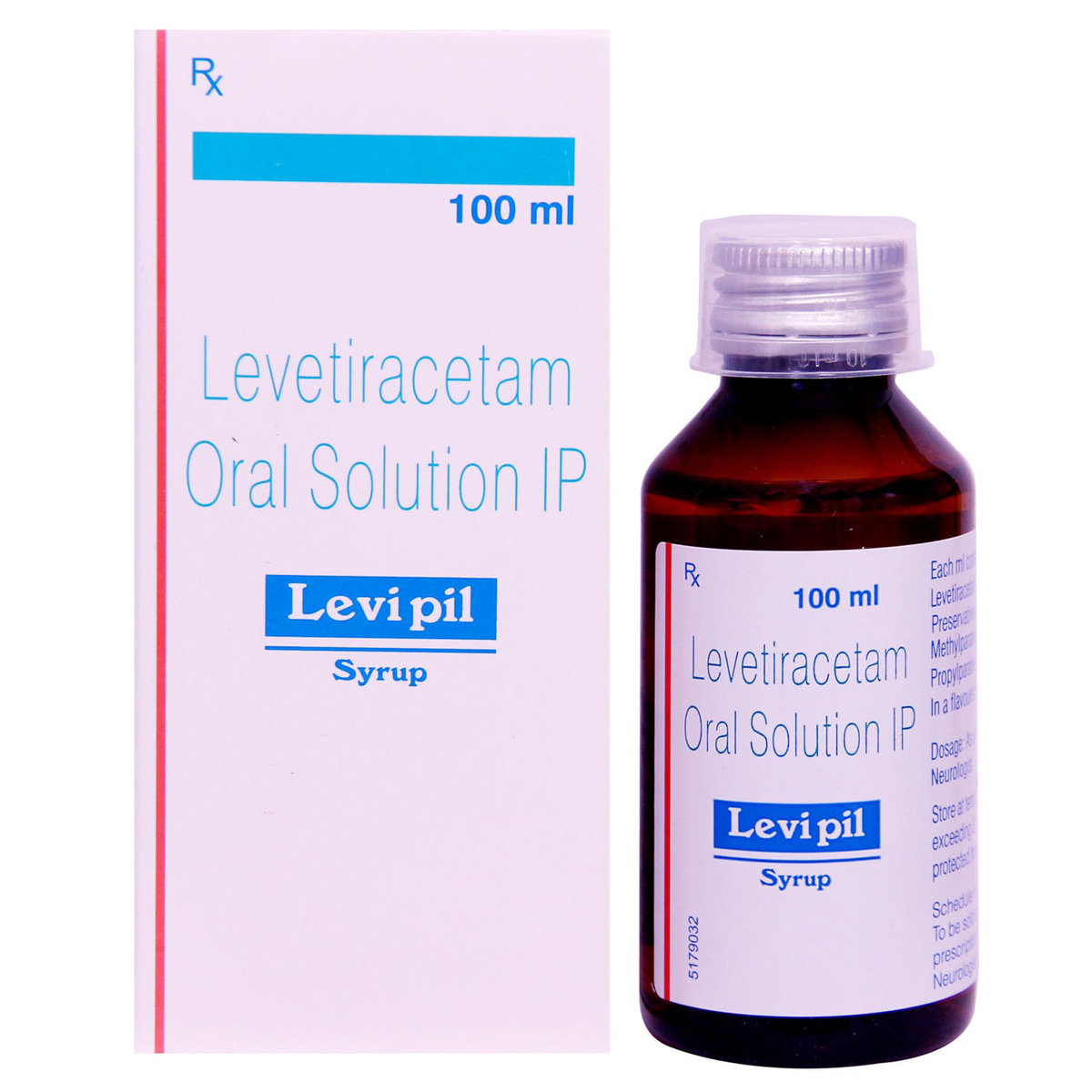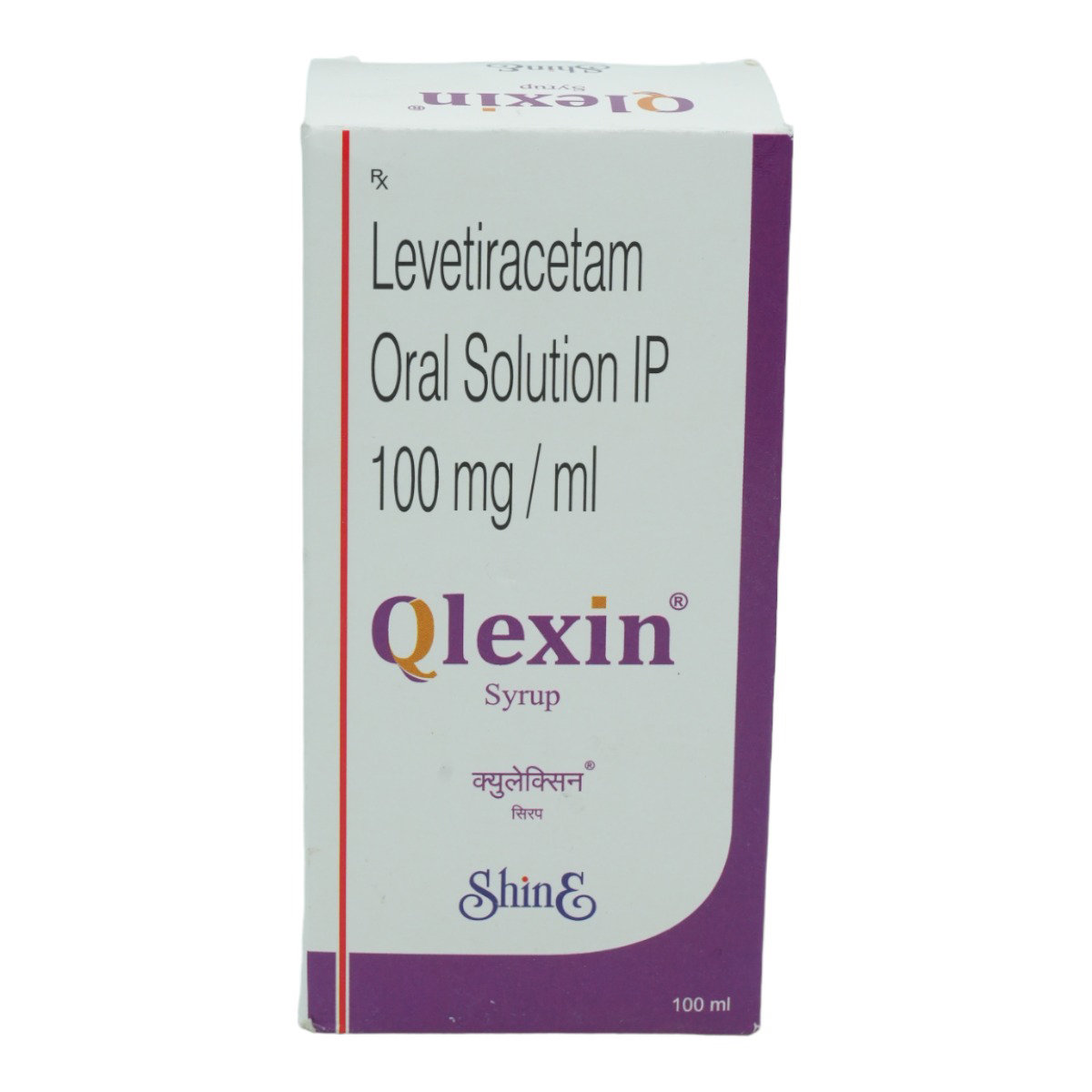Verocet Syrup 100 ml
MRP ₹415.5
(Inclusive of all Taxes)
₹62.3 Cashback (15%)
Provide Delivery Location
Online payment accepted
 Prescription drug
Prescription drugWhats That
Composition :
Manufacturer/Marketer :
Consume Type :
Expires on or after :
Return Policy :
About Verocet Syrup
Verocet Syrup belongs to a group of medications known as 'anti-convulsant' primarily used to treat seizures (fits) due to epilepsy. Epilepsy is a chronic condition where the patients have repeated fits (convulsions). Verocet Syrup is used for the epilepsy form in which the fits affect only one side of the brain, but could extend to larger areas on both sides of the brain.
Verocet Syrup contains Levetiracetam, used in combination or alone for treating symptoms of epilepsy. It works by slowing down the abnormal signals which the brain gives, leading to episodes of seizures. It helps by suppressing specific brain sites responsible for abnormal activity and prevents the spread of electrical signals that cause seizures. It reduces the episodes of seizures but does not cure epilepsy.
Take Verocet Syrup as prescribed. Your doctor will decide how often you should take Verocet Syrup based on your medical condition. In some cases, you may experience daytime drowsiness, disturbed sleep, light-headedness, or dizziness, sleepiness, general weakness, and unexplained infections. Most of these side effects of Verocet Syrup do not require medical attention and gradually resolve over time. However, if the side effects are persistent, please reach out to your doctor.
It is not known if Verocet Syrup is safe or effective in children below four years of age. Do not take Verocet Syrup if you have any kidney disease, lung disease, muscle weakness (myasthenia gravis), difficulty in sleeping (sleep apnoea), severe liver disease, or a problem with alcohol or other prescription drugs. It is not known if Verocet Syrup will harm the foetus or not if you are pregnant or planning to get pregnant. Do not drive or operate heavy machinery until you know how Verocet Syrup affects you, as its intake may make you dizzy or sleepy. Young children (especially less than 16 years) are more likely to develop behavioural changes like aggression than adults, so Verocet Syrup should only be given under medical supervision to children. Suddenly stopping Verocet Syrup can cause withdrawal symptoms like anxiety, increased heart rate, tremor, or general unwell feeling. Suicidal thoughts or actions can be caused in some patients taking Verocet Syrup , so pay attention to any sudden change in mood swings, behaviour, or feeling.
Uses of Verocet Syrup
Directions for Use
Key Benefits
Verocet Syrup contains Levetiracetam, used in combination or alone for treating symptoms of epilepsy. It works by slowing down the abnormal signals which the brain gives, leading to episodes of seizures. It helps by suppressing specific brain sites responsible for abnormal activity and prevents the spread of electrical signals that cause seizures. It reduces the episodes of seizures but does not cure epilepsy.
Storage
- Avoid driving or operating machinery or activities that require high focus until you know how the medication affects you.
- Maintain a fixed sleeping schedule, create a relaxing bedtime routine and ensure your sleeping space is comfortable to maximize your sleep quality.
- Limit alcohol and caffeine as these may worsen drowsiness and disturb sleep patterns.
- Drink plenty of water as it helps with alertness and keeps you hydrated and for overall well-being.
- Moderate physical activity can improve energy levels, but avoid intense workouts right before bedtime.
- Rest well; get enough sleep.
- Eat a balanced diet and drink enough water.
- Manage stress with yoga and meditation.
- Limit alcohol and caffeine.
- Physical activities like walking or jogging might help boost energy and make you feel less tired.
- Wash your hands regularly with soap and water or use a hand sanitizer to prevent the spread of infections.
- Wear masks, gloves and other protective clothing.
- Cover sneezes and coughs with a medical mask or tissue or your elbow.
- Take vaccinations to enhance your immunity to specific diseases.
- Clean your utensils, linen and surfaces regularly.
- Rest well; get enough sleep.
- Eat a balanced diet and drink enough water.
- Manage stress with yoga and meditation.
- Limit alcohol and caffeine.
- Physical activities like walking or jogging might help boost energy and make you feel less tired.
- Hydrate your body: Drink enough water to prevent dehydration and headaches.
- Calm Your Mind: Deep breathing and meditation can help you relax and relieve stress.
- Rest and Recharge: Sleep for 7-8 hours to reduce headache triggers.
- Take rest: lie down in a quiet, dark environment.
- Cold or warm compresses can help reduce tension.
- Stay Upright: Maintain good posture to keep symptoms from getting worse.
- To treat headaches naturally, try acupuncture or massage therapy.
- Over-the-counter pain relievers include acetaminophen and ibuprofen.
- Prescription Assistance: Speak with your doctor about more substantial drug alternatives.
- Severe Headaches: Seek emergency medical assistance for sudden, severe headaches.
- Frequent Headaches: If you get reoccurring headaches, consult your doctor.
- Headaches with Symptoms: Seek medical attention if your headaches include fever, disorientation, or weakness.
- Tell your doctor about the cough symptoms you're experiencing, which may be triggered by your medication.
- Your doctor may adjust your treatment plan by changing your medication, adding new medications, or providing guidance on managing your cough symptoms.
- Practice good hygiene, including frequent handwashing, avoiding close contact with others, and avoiding sharing utensils or personal items.
- Stay hydrated by drinking plenty of fluids, such as water, tea, or soup, to help thin out mucus and soothe your throat.
- Get plenty of rest and engage in stress-reducing activities to help your body recover. If your cough persists or worsens, consult your doctor for further guidance.
- Inform your doctor about dizziness symptoms. They may adjust your medication regimen or prescribe additional medications to manage symptoms.
- Follow your doctor's instructions for taking medication, and take it at the same time every day to minimize dizziness.
- When standing up, do so slowly and carefully to avoid sudden dizziness.
- Avoid making sudden movements, such as turning or bending quickly, which can exacerbate dizziness.
- Drink plenty of water throughout the day to stay hydrated and help alleviate dizziness symptoms.
- If you're feeling dizzy, sit or lie down and rest until the dizziness passes.
- Track when dizziness occurs and any factors that may trigger it, and share this information with your doctor to help manage symptoms.
Drug Warnings
Taking Verocet Syrup with other anti-epileptic medication can cause severe drowsiness, breathing problems, coma, and death. Verocet Syrup should be taken with extreme caution in patients with a history of alcohol or drug abuse. Verocet Syrup may affect your ability to drive or operate heavy machinery if taken with alcohol as you may feel dizzy, and you may be unable to concentrate. If you feel excess suicidal thoughts, difficulty concentrating, sleep disturbances, dizziness, or sleepiness, let your doctor know about this. Pregnant or lactating women should consult a doctor before taking it as Category C pregnancy medication. Do not take Verocet Syrup if you are allergic to any of its active ingredients, suffer from lung disease, liver disease, glaucoma, have difficulty in sleeping (sleep apnoea). Verocet Syrup can cause serious allergic reactions (anaphylaxis), which can be life-threatening. Please visit the doctor immediately if you have a rash, itching, trouble breathing, trouble swallowing, or swelling of your hands, face, or mouth while using this medicine.
Drug-Drug Interactions
Drug-Drug Interactions
Login/Sign Up
Using buprenorphine together with Verocet Syrup 100 ml can cause central nervous system depression (a physiological state that can result in a decreased rate of breathing, decreased heart rate, and loss of consciousness).
How to manage the interaction:
Concomitant administration of Verocet Syrup 100 ml alongside buprenorphine can result in an interaction, it can be taken if a doctor has advised it. Do not exceed the doses, frequency, or duration of usage advised by a doctor. You should avoid driving or operating hazardous machinery. Do not stop using any medications without talking to a doctor.
Using ketamine together with Verocet Syrup 100 ml may increase side effects (dizziness, drowsiness, confusion, difficulty concentrating, excessive sedation, and respiratory depression).
How to manage the interaction:
Although there is a possible interaction between Ketamine and Verocet Syrup 100 ml, you can take these medicines together if prescribed by a doctor. Do not discontinue any medications without consulting a doctor.
Using sodium oxybate together with Verocet Syrup 100 ml may increase side effects (drowsiness, dizziness, lightheadedness, confusion, depression, low blood pressure, slow or shallow breathing, and impairment in thinking, judgment, and motor coordination).
How to manage the interaction:
Taking Verocet Syrup 100 ml with Sodium oxybate together can result in an interaction, but it can be taken if a doctor has advised it. Do not discontinue any medications without consulting a doctor.
Coadministration of deferiprone with Verocet Syrup 100 ml can increase the toxicity of the other.
How to manage the interaction:
Taking Verocet Syrup 100 ml with Deferiprone together can result in an interaction, but it can be taken if a doctor has advised it. Do not discontinue any medications without consulting a doctor.
Drug-Food Interactions
Drug-Food Interactions
Login/Sign Up
Diet & Lifestyle Advise
- Do regular exercise, which can help lower anxiety by releasing endorphins and improving your sleep and self-image.
- Find the humor in your daily life. Try to watch light-hearted shows to help relieve stress.
- You can try increasing your mindfulness by including yoga, meditation, mindfulness-based cognitive therapy, and mindfulness-based stress reduction.
- Drink enough water to stay hydrated, and limit or avoid alcohol and caffeine to relieve anxiety.
- Include a diet rich in whole grains, vegetables, and fruits. This is a healthier option than eating a lot of simple carbohydrates found in processed foods.
- Reduce your alcohol, caffeine, added sugar, high salt, and high fat intake. Especially trans-fat may help also help reduce inflammation.
- You can include antioxidants in your daily diet like ashwagandha, omega-3 fatty acids, green tea, and lemon balm.
- Try to spend time with your friends and family. Having a strong social network may help you lower your risk of anxiety.
Side Effects of Verocet Syrup
- Daytime drowsiness
- Disturbed sleep
- Light-headedness
- Dizziness
- Sleepiness
- General weakness
- Unexplained infections
Habit Forming
Therapeutic Class
All Substitutes & Brand Comparisons
RX
Out of StockLevikem Syrup 100 ml
Elikem Pharmaceuticals Pvt Ltd
₹400
(₹3.6/ 1ml)
3% CHEAPERRX
Levigress 100Ml Syp
La Renon Healthcare Pvt Ltd
₹415
(₹3.65/ 1ml)
2% CHEAPERRX
Epitra Syrup 100 ml
Linux Laboratories Pvt Ltd
₹409.5
(₹3.69/ 1ml)
1% CHEAPER
Drug-Diseases Interactions
Drug-Diseases Interactions
Login/Sign Up
FAQs
Drug-Drug Interactions Checker List
- RITONAVIR
- CIMETIDINE
- DISULFIRAM
- PHENOBARBITAL
- LEVODOPA
- THEOPHYLLINE
- PHENYTOIN
Disease/Condition Glossary
Epilepsy: Epilepsy is a brain-related chronic disorder characterized by episodes of seizures (fits). In this condition, there is a chemical change in the brain cells (neurons) that leads to a sudden rise of electrical activity (impulse) in the brain followed by sudden jerky movements of limbs or a body part. This disease cannot be cured but managed.

Have a query?
Alcohol
Safe if prescribed
You are recommended not to consume alcohol along with Verocet Syrup to avoid unpleasant side-effects like drowsiness, dizziness, or sleepiness. It may also lead to a life-threatening condition like coma if taken with excessive alcohol.
Pregnancy
Consult your doctor
Verocet Syrup is a Category C risk pregnancy drug that is considered unsafe for pregnant women. Verocet Syrup can have some harmful effects on the baby (fetus), so your doctor will weigh the benefits and any potential risks before prescribing it to you.
Breast Feeding
Consult your doctor
Verocet Syrup passes into the breast milk and may affect the health of the baby. So, keep your doctor informed if you're planning to breastfeed while on this medication.
Driving
Safe if prescribed
Verocet Syrup usually causes dizziness, drowsiness, and visual disturbances, which may affect their ability to drive or operate machinery. So, do not drive or operate heavy machinery if you feel sleepy or dizzy after taking Verocet Syrup . Tell your doctor if you get these types of side effects.
Liver
Consult your doctor
Verocet Syrup to be taken with caution, especially if you have a history of liver disease. The dose may have to be adjusted by your doctor.
Kidney
Consult your doctor
Verocet Syrup to be taken with caution, especially if you have a history of kidney disorders. The dose may have to be adjusted by your doctor. Do not give Verocet Syrup to dialysis patients and kidney failure patients.
Children
Safe if prescribed
It is not known whether Verocet Syrup is safe or effective in treating conditions like panic disorder in children younger than 18 years old. So, your doctor will decide whether Verocet Syrup can be given to the children less than 18 years of age or not.






